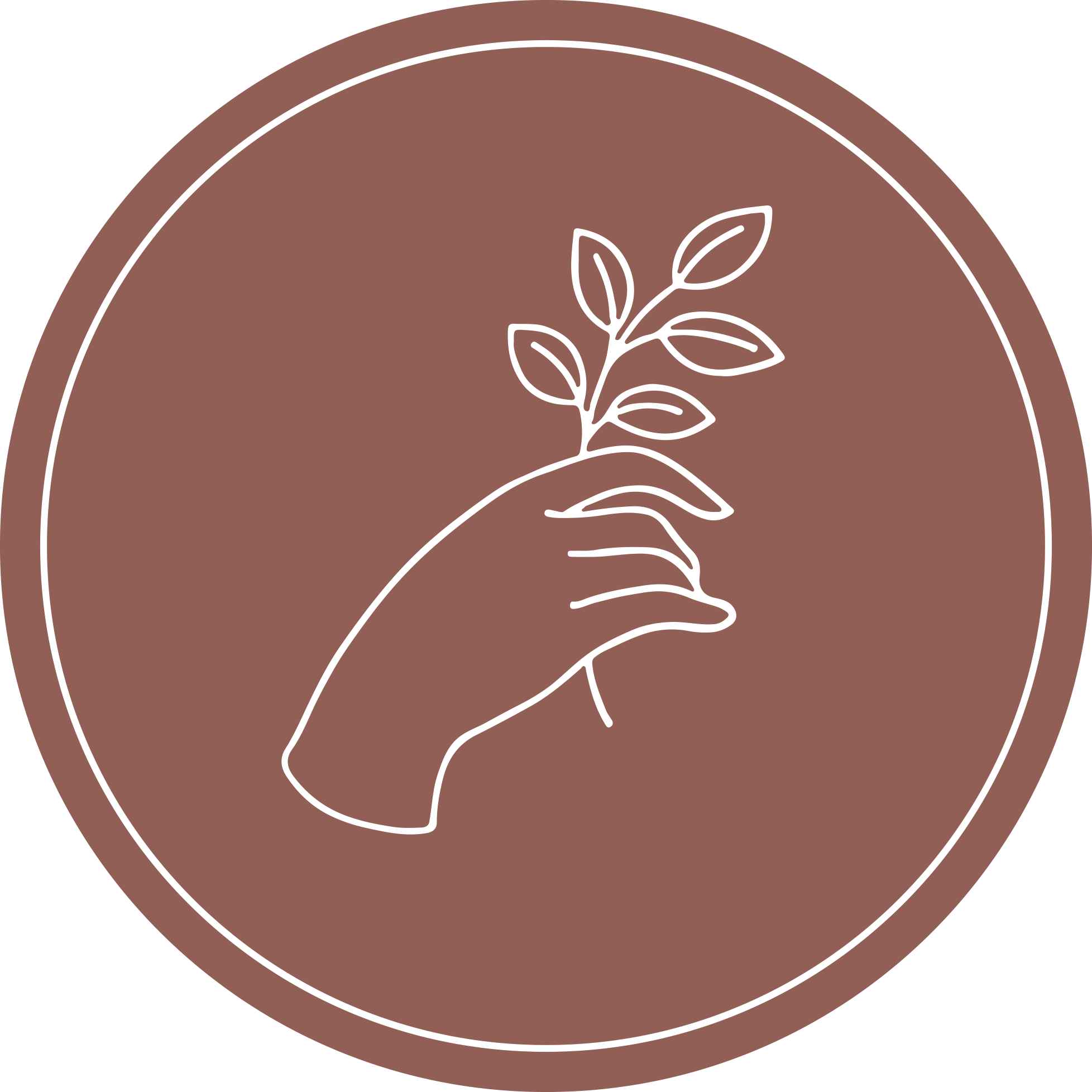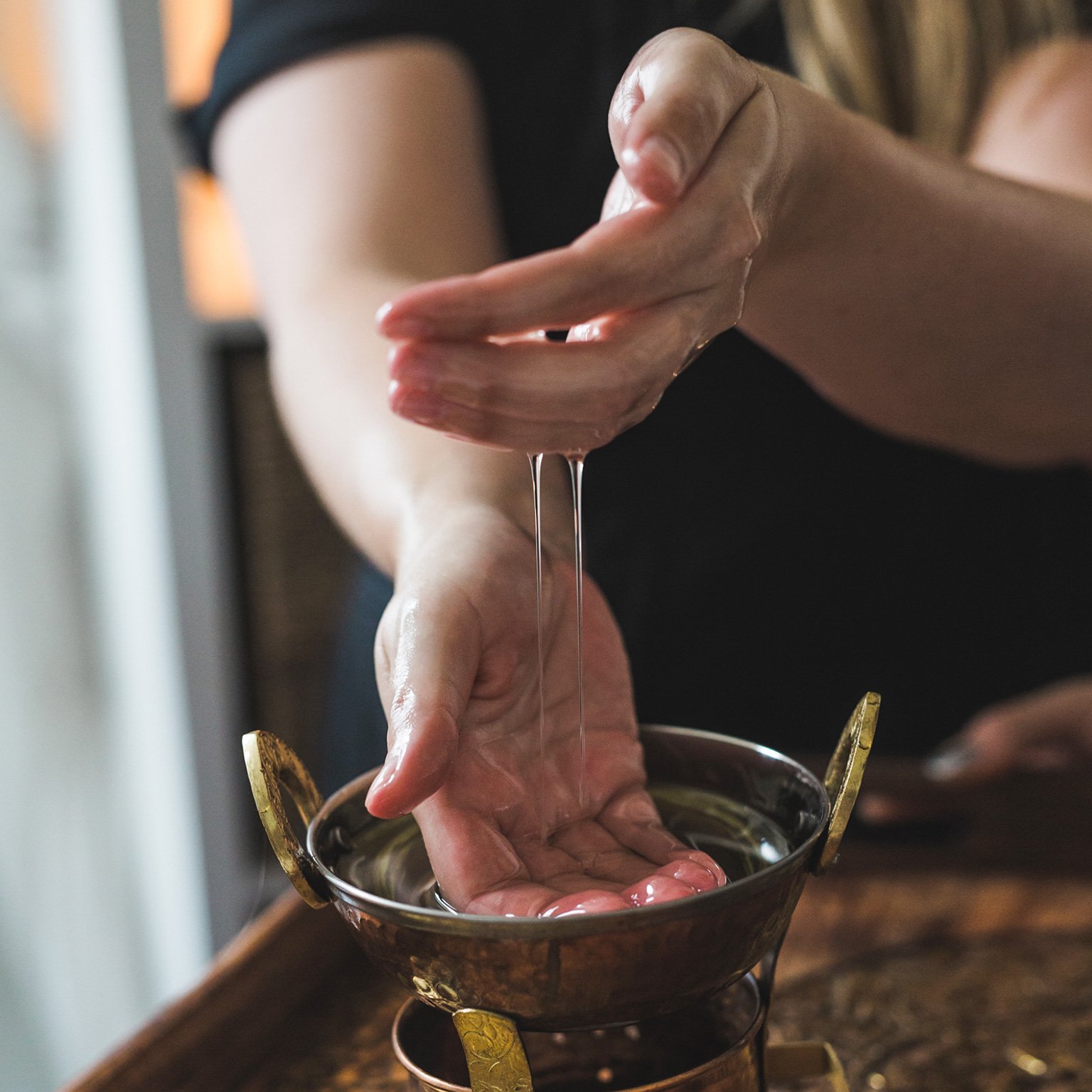Ayurvedic Health
Counsellor Program
We aim to offer authentic education in Ayurveda that is accessible and easy to implement for anyone wanting to use natural methods in their daily lives or to support others in their journey to health. This program allows the learner to develop skills and confidence in assessment of health conditions, identifying areas for changes and formulating step wise protocols for clients to implement for healing.
Our program includes all the required materials for an Ayurvedic Health Counselor and beyond - with a focus on understanding the why, the logic, behind each Ayurvedic theory and recommendation. We don't just want you to learn the list of things to do, but to understand why you're choosing one component over another and to be able to articulate this with your clients.

WHAT YOU GET
Graduates will leave with:
✓ Knowledge of Ayurvedic theory and application
✓ Clinical skills in client assessment
✓ Confidence in communicating and talking about Ayurvedic approach to health and well being
✓ Confidence in creating individualized protocols for each client
✓ Health support for a variety of age groups
✓ Setting up your own Ayurveda practice
✓ Running workshops and digestive resets
The Benefits
Who is this training for?
Are you passionate about natural health and Ayurveda specifically? Does Ayurveda help to unlock the answers that you've been looking for? If so, then the AHC program is for you.
We often hear from students of Ayurveda, that it has helped them develop a deep understanding of their own bodies and what their specific needs are. Many who follow this journey benefit in their physical, energetic, emotional, mental, and spiritual health, and it inspires them to offer similar support for others.
If you have the desire to share your journey of healing and utilize natural Ayurvedic methods to empower clients, then the Ayurvedic Health Counsellor program is for you.
If you are interested in learning more, have a listen to our 2024 Information Session below:
The Program
Who would benefit?
Ayurveda is a universal health science meant to help anyone navigate the experiences of life. When we learn and feel confident in the practice of Ayurveda, the learner and everyone around them benefits from this information and skills.
Each person has a unique experience and background they bring to class. Their individual journey adds a distinct perspective that can offer new ways of understanding and approaching Ayurveda. When they use their unique voice to offer Ayurvedic tools and recommendations, everyone around them benefits. This includes the student, their families, clients, and community.
AYURVEDIC PROGRAM
The Modules
-
We highlight the importance and utility of the Śad Darśana (6 philosophies included in Āyurveda).
A detailed description of Sāṃkhya Darśana as explained in Caraka Samhita which includes the components of the human body, embryology, life span and factors involved in longevity.
-
Describes the Āyurvedic approach to physiology which includes a description of doṣas, sub-doṣas, dhātus (tissues), malas (bio-wastes), prakṛti (bodily and psychological constitution types) and ṛtu kāla (menstruation).
-
Describes the functional aspects and details of digestion including agni (digestive fire), pācana (digestion & metabolism), and dhātu parināma (formation and nourishment of tissues).
The structures involved in the digestion and delivery of nutrients to the whole body including śrotāmsi (channels).
Description of factors of digestion including, āma (undigested food), metabolism, and Ojas (vital essence).
-
Details the factors involved in one’s health and the tools and techniques used in Āyurveda to maintain physical and emotional health.
These techniques include dinacarya (daily regimen) practices, rātri carya (nighttime routine), and ṛtu carya (seasonal regimen).
-
Describes the Āyurvedic approach to pathology or disease causation and pathogenesis along with signs ans symptoms. This module will describe the Trividha Kāraṇa (three fundamental causation for illness), specific causative factors for changes in the dosas, dhātus (tissues), and malas (biowaste) including signs and symptoms of vṛddhi (increase or aggravation) as well as kṣaya (depletion) of each.
-
Details the methods of clinical examination and assessment. This includes the methods described in classical Āyurvedic literature such as Trividha parikṣa (threefold assessment), Daśavidha parikṣa (10-fold assessment), and Aṣṭavidha parikṣa (eight fold assessment).
-
Details the approach to substance found in nature that are used as food as well as factors to support one’s health.
The fundamental concepts required to understand the nature of any substance are rasa (taste), guṇa (quality), vīrya (potency), vipāka (post digestive effect), and dosas karma (effect on dosas).
-
Describes the Āyurvedic approach to food, its utility and importance in health. This module unfolds the Āyurvedic food groups, qualities and therapeutic benefits of food as well as the guidelines regarding dietary patterns.
The various methods of processing food will also be described and the importance of cooking methods to manage specific health needs.
-
Explains the Āyurvedic approach to the management of all types of illness with the fundamental dichotomy of cikitsa i.e., Brmhana (nourishing) and Langhana (depleting) therapies.
Many methods are classified based on this dual approach to management including the Śad Upakrama (6 therapeutic measures to pacify doṣas).
The four basic techniques for the management of imbalance are diet, lifestyle, herbs/ formulations, and therapies.
-
Details the importance of the mind and mental health in longevity and quality of life. The mind has an integral role in the everyday experience which not only regulates mood but also affects the physiology of the body.
This module describes the assessment, tools and techniques in maintaining and promoting good mental health.
-
Includes everyday clinical examples of how to utilize Āyurvedic techniques for the management of age-related imbalances. Simple techniques based on fundamental concepts of dosas predominant in different age groups, expected health challenges and diet and lifestyle recommendations.
-
Includes the practical aspects of becoming an Āyurvedic Health Counselor including scope of practice, clinical ethics, and the Hippocratic oath. Review of how to assess vital signs, and guidelines for setting up a practice and business.
Demonstration of simple home remedies for common ailments observed in an Āyurvedic clinical practice.

Our program is different because it has been specially formulated to follow the natural progression of learning Ayurvedic concepts
We prioritize understanding the fundamentals, learning how to implement them in a variety of scenarios and feeling confident to support others in their process of healing. All of this with a focus on compassion with ourselves and the clients we support. Often times Ayurveda recommendations can seem foreign and rigid, however there is an underlying logic that is in aligned with our body’s natural wisdom.
We focus on the individual’s innate logic through the lens of Ayurveda and use what is accessible to them to reinstate health. Our program strives to empower the counselor with sound skills in authentic practice, compassion in the clinical approach to clients, and growth in the study of Ayurveda.

Program Investment
$12,500 CAD (Deposit $500 CAD)
The program consists of 12 modules and a retreat offered over 12 months. All learning modules take place through online webinars so you can attend wherever you are in the world.
Webinars take place on Thursday evenings. The program also runs one weekend per month on both Saturday and Sunday. Specific details will be listed under the workshops section of the website when an upcoming program is being offered.

Program Teachers
Dr. Anusha Sehgal
Anusha Sehgal is a classically trained Āyurvedic practitioner with over 20 years of experience in teaching, practice and research in the field. She is currently the director of Boston Āyurveda Inc.
Dr. Mona Warner
Mona Warner is a Doctor of Āyurvedic Medicine, Āyurvedic-Yoga Therapist, Yoga Teacher Trainer, and Vedic Astrologer. She is a warm and joyful educator whose mission is to make the world a better place.
Veronica Wolff-Casey
Veronica Wolff-Casey is an experienced and humorous teacher, who is passionate about helping people. She has been teaching yoga for the last 20 years and Āyurveda for the last decade.
Our Values
01. Practice
✓ “Do the thing” - build skills, have practical experiences
✓ Overcome fear and doubt via confidence in the methods, your personal practice, and clinical practice.
02. Authenticity
✓ Rooted in the classics
✓ Teachers with practices (personal and clinical)
✓ Continued learning and growth
03. Well-being
✓ Svastha ślokah - health
✓ Uplifting humanity (individuals, families, communities) through increased health and well-being through Āyurveda.
04. Interconnectivity
✓ Life into teaching, big picture, holistic
✓ Heart-felt and compassionate, relatioships
✓ Student-teacher relationship
05. Accessibility
✓ How we teach, online format
✓ Logical and practical
✓ Translation of ancient wisdom principles for practice in a modern context




















